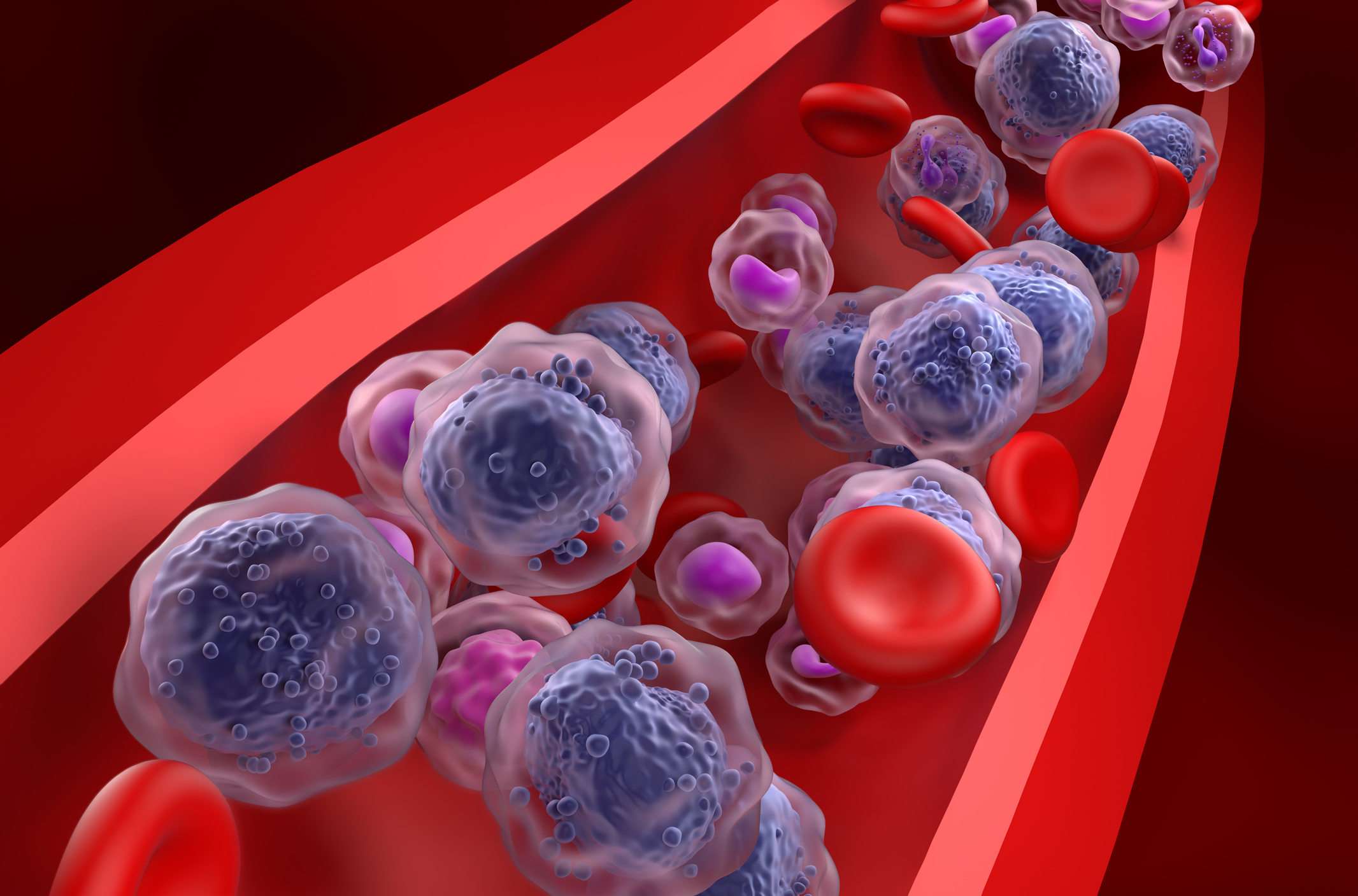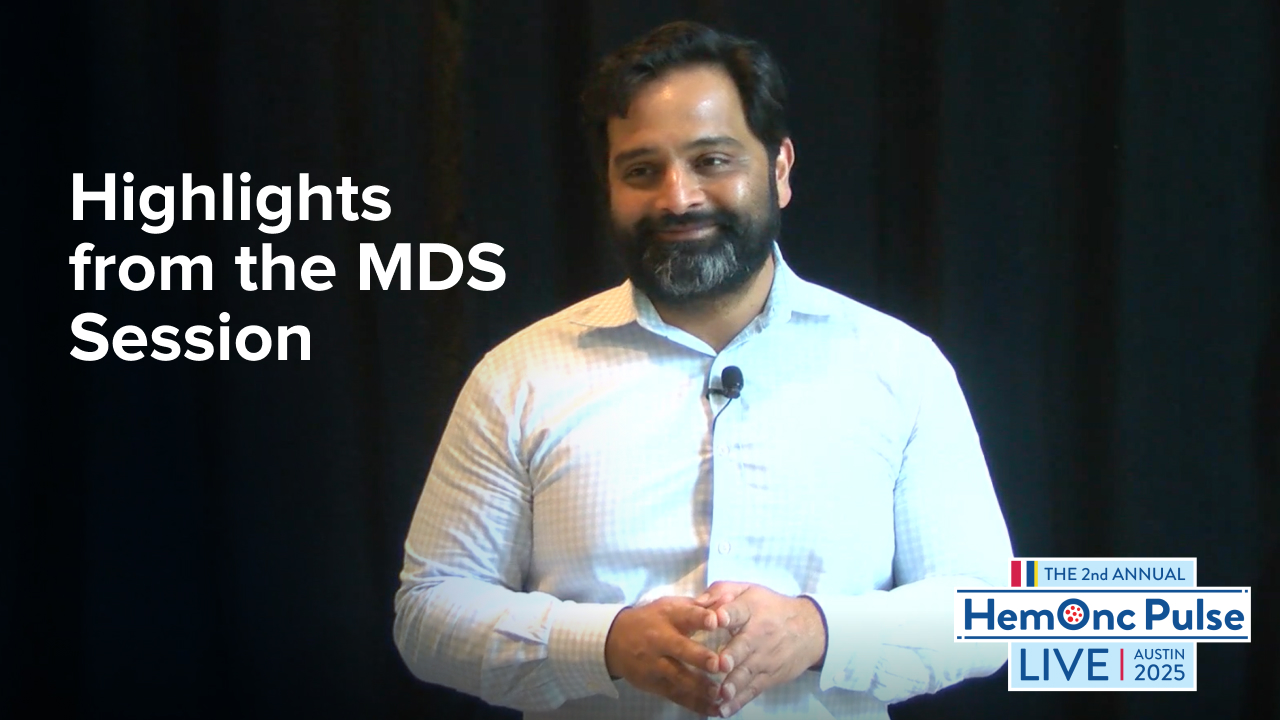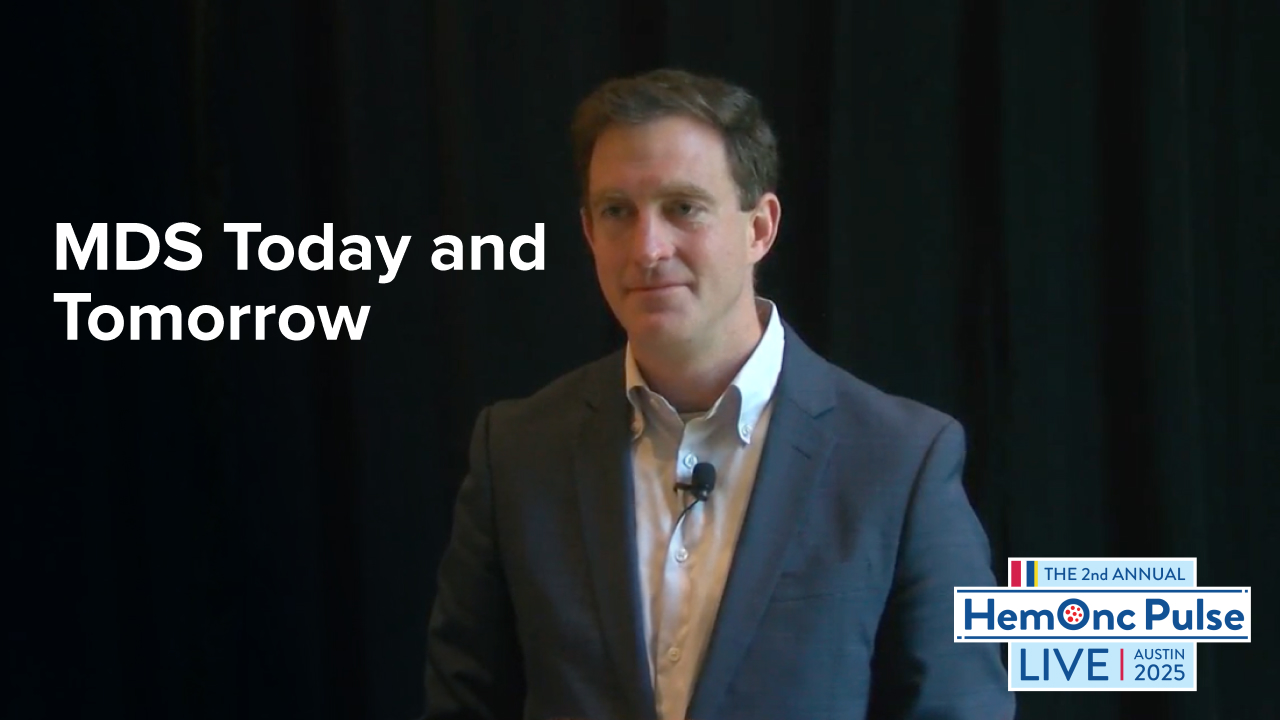
Achieving complete cytogenetic response (CCyR) results in the longest overall survival (OS) in patients with myelodysplastic syndromes (MDS) with abnormal cytogenetics, according to a recent study.
The data were presented by Samuel Urrutia, MD, of the University of Texas MD Anderson Cancer Center, at the European Hematology Association 2024 Hybrid Congress in Madrid, Spain.
To determine the effect of CCyR on OS, Dr. Urrutia and colleagues reviewed 2,311 patients treated at MD Anderson. Less than half (43%) of patients had very poor risk cytogenetics, and 68% were high- or very high-risk per the Revised International Prognostic Scoring System.
A total of 330 patients (14%) had CCyR, 208 (9%) had complete response (CR), 255 (11%) had CR with bilineage recovery (CRbi), 151 (7%) had CR with unilineage recovery (CRuni), four (0.2%) had CR with incomplete hematologic recovery (CRh), and 1,363 (59%) had no CR.
The researchers compared the median OS after 59 months for each response group (See TABLE 1).
TABLE 1. Median OS (in months) by response group
| Endpoint | CR | No CR | CRh, CRbi, and CRuni | CCyR |
| OS | 21 | 10 | 19 | 26 |
| OS for patients with HSCT censoring | 19 | 11 | 19 | 27 |
| OS for low-risk patients with HSCT censoring | 36 | 40 | 38 | 87 |
| OS for intermediate- or high-risk patients with HSCT censoring | 17 | 9 | 15 | 25 |
All (P<0.001).
In a multivariate regression analysis, some independent prognostic factors for survival included age older than 75 years (HR, 3.1; P<0.001), complex karyotype (HR, 2.15; P<0.001), performance status 3-4 (HR, 1.48; P<0.001), hemoglobin <8 g/dL (HR, 1.48; P=0.003), and core-binding factor cytogenetics (HR, 0.48; P<0.001).
“Given poor outcomes in older patients with MDS, CCyR is a valid surrogate for long-term outcomes,” Dr. Urrutia and colleagues concluded.
Reference
Urrutia S, Sasaki K, Kantarjian HM, et al. Impact of complete cytogenetic response in patients with myelodysplastic syndromes. Abstract #P767. Presented at the European Hematology Association 2024 Hybrid Congress. June 13-16; Madrid, Spain.






 © 2025 Mashup Media, LLC, a Formedics Property. All Rights Reserved.
© 2025 Mashup Media, LLC, a Formedics Property. All Rights Reserved.